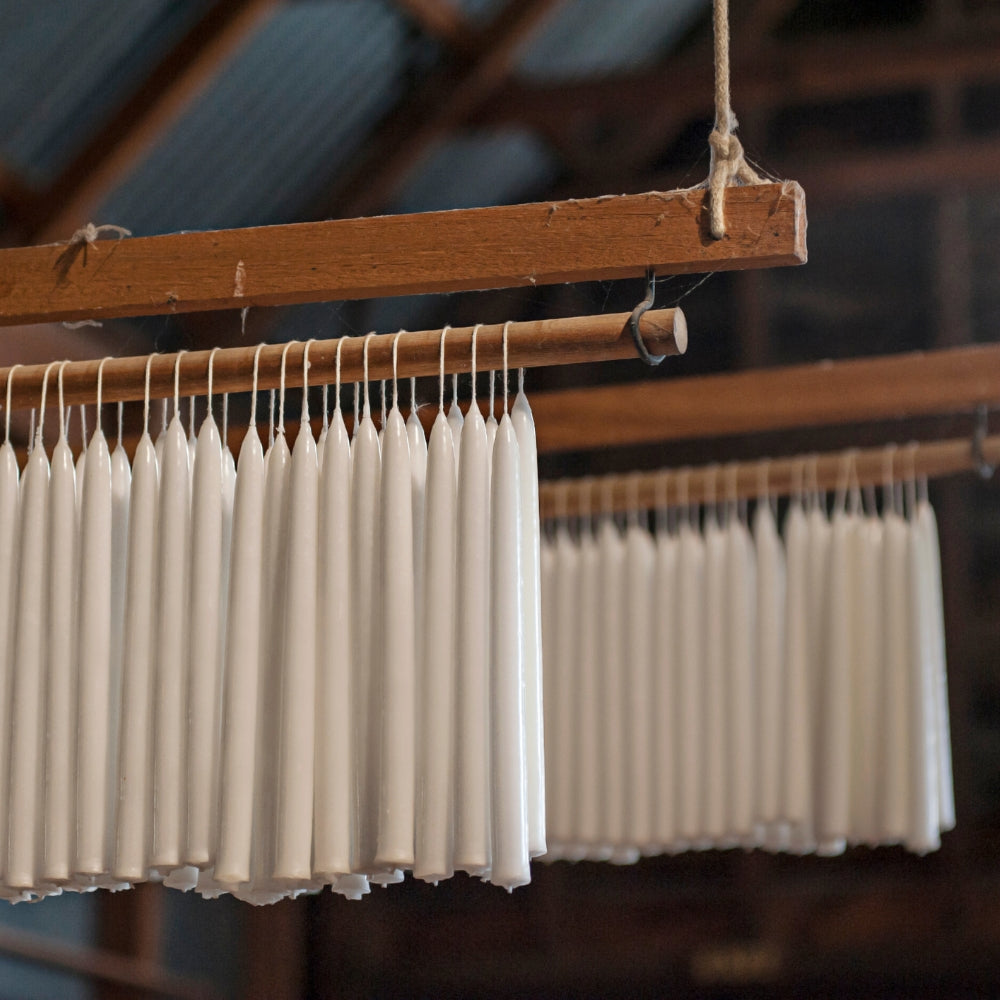Article: Soy, Coconut, or Paraffin Candle Wax? What's the Difference?
Soy, Coconut, or Paraffin Candle Wax? What's the Difference?
Soy wax is derived from soybeans, which are an entirely natural, renewable, and eco-friendly resource. It's a relatively new addition to the candle making world, having emerged in the early 1990s. Soy wax has quickly become the preferred choice of many candle makers and buyers due to its natural properties and environmentally friendly production process. Soy wax candles are known for their slow burn time, often up to 50% longer than paraffin candles. Soy wax also has a lower melting point than paraffin wax, making it less likely to burn too hot and result in an unpleasant scent or blackening of the jar. Furthermore, soy wax produces little-to-no soot, resulting in a cleaner burning candle that doesn't deposit black soot onto the jar or into the air. Soot buildup can lead to respiratory issues and leave stains on nearby surfaces.
Coconut wax is another natural, renewable, and eco-friendly wax option that has gained popularity among candle makers in recent years. Coconut wax is derived from coconut oil and is known for its creamy white appearance and natural anti-bacterial and anti-fungal properties. Coconut wax also burns at a cooler temperature than soy wax, resulting in a more even and slower burn. Unlike soy wax, coconut wax can hold a larger amount of fragrance. Its natural properties permit better scent throw, providing more robust and long-lasting fragrances in candles. Coconut wax is typically blended with other waxes like soy wax to enhance its performance. However, pure coconut wax can be challenging to work with because of its delicate structure and inconsistencies in texture. Paraffin wax is a petroleum-based wax that has been in use for candle making since the 1800s. It's often used because it's cheaper than natural wax types like soy and coconut wax, but it's not an eco-friendly option.
Paraffin wax is a petroleum-derived wax that has been widely used in candle making for over a century. It is a highly versatile wax that is easy to work with, making it a popular choice for candle makers. Paraffin wax has a high melting point, making it suitable for detailed and intricate designs, and it is available in a range of melting points, which allows for greater control over the candle's burn time. However, paraffin wax candles produce soot and toxins when burned, making them less healthy for the environment. Nonetheless, paraffin wax candles remain a popular choice for their affordability and convenience.
Another aspect to consider when choosing a wax type is its source. With soy and coconut wax, you can trace the source of the raw material back to its specific location. Soy wax is predominantly grown in the US, with a smaller percentage coming from South America. Coconut wax is usually sourced from Asia, specifically from regions that have a high yield of coconuts. In contrast, the source of paraffin wax is unknown because it's a byproduct of the oil refining process.
It's vital to choose the wax type that best suits your needs and aligns with your values. Natural waxes like soy and coconut wax are eco-friendly and provide a cleaner, longer, and more fragrant burn experience than paraffin wax. While paraffin wax candles are relatively inexpensive, their non-renewable source and harmful chemicals make them a less desirable option. Consider the source of the wax type, the burn quality, scent throw, and eco-friendliness before selecting the wax type that's right for you.



2 comments
Just started testing my fragrance oils with this wax and so far I’m liking the results I’m getting.
Lisa Parker
I’m so proud of everyone at H+H. I have been following your business for almost 3 years and have ordered from you and received the utmost in customer service. Being a native Michigander and MSU Alumni myself, that makes H+H even more meaningful as a preferred distributor. I look forward to future purchases and watching your company grow even more!
Stephen
Steve Chappellie
Leave a comment
This site is protected by hCaptcha and the hCaptcha Privacy Policy and Terms of Service apply.